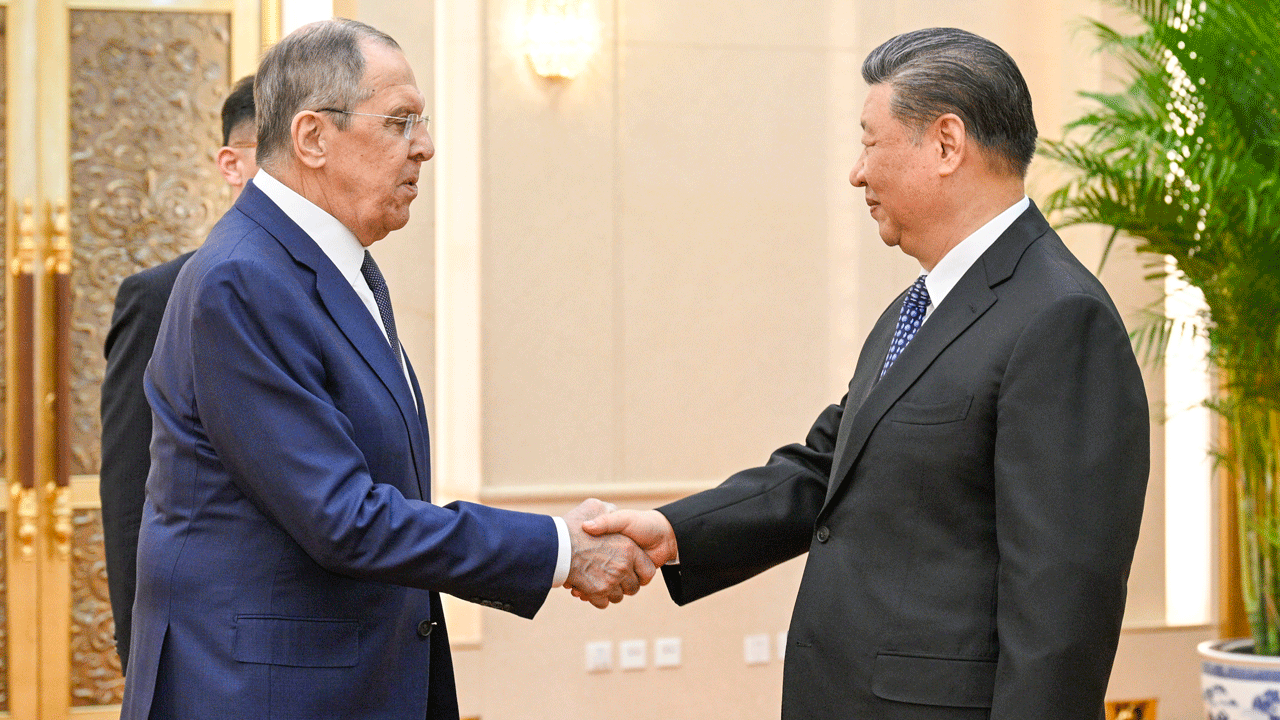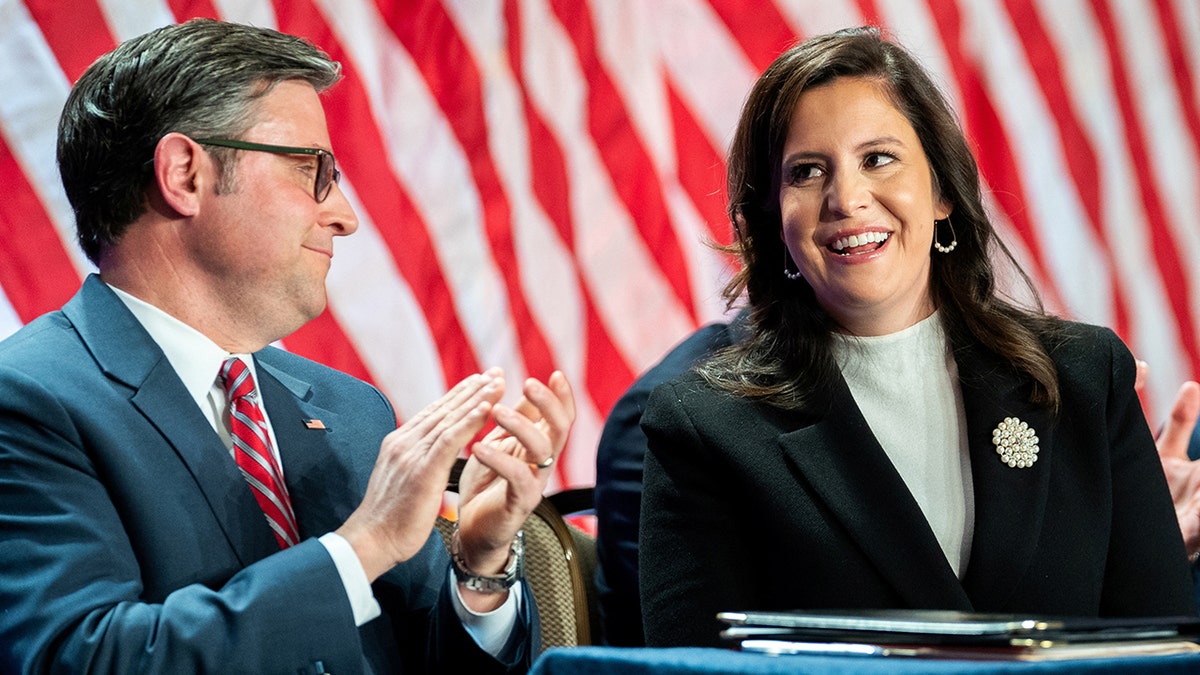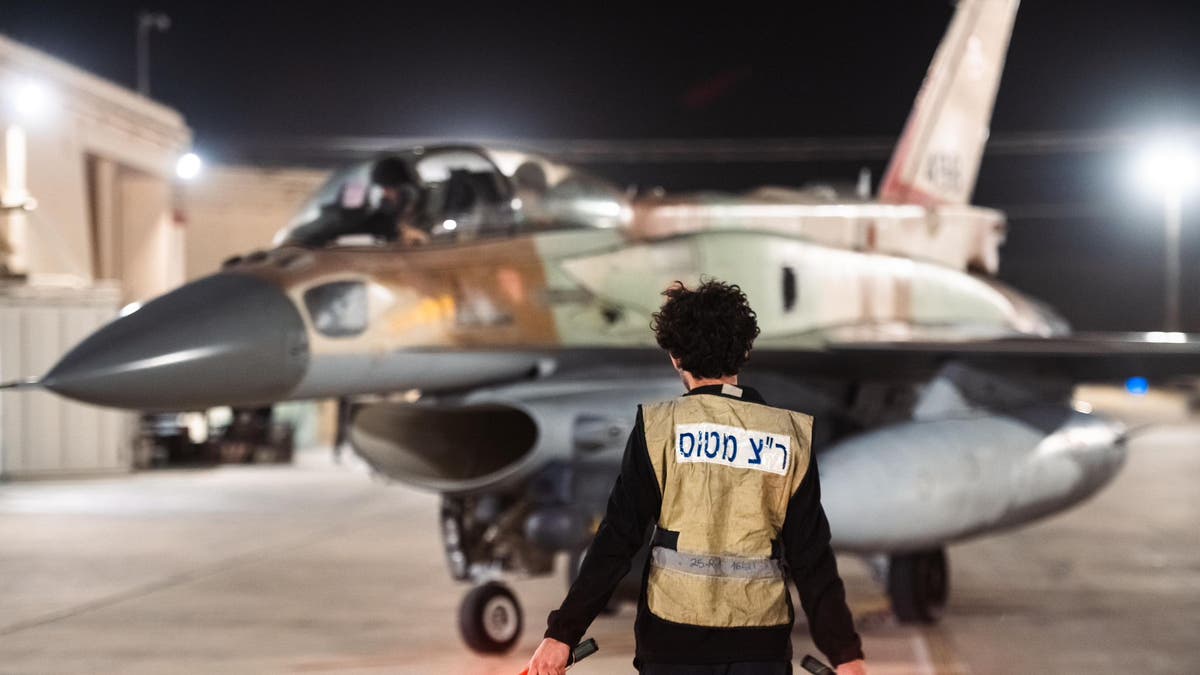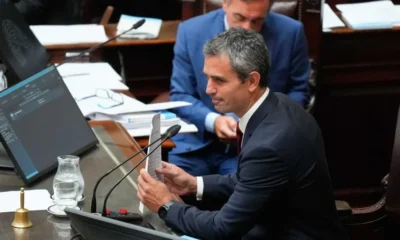INTERNACIONAL
US intelligence finding shows China surging equipment sales to Russia to help war effort in Ukraine

WASHINGTON (AP) — China has surged sales to Russia of machine tools, microelectronics and other technology that Moscow in turn is using to produce missiles, tanks, aircraft and other weaponry for use in its war against Ukraine, according to a U.S. assessment.
Two senior Biden administration officials, who discussed the sensitive findings Friday on the condition of anonymity, said that in 2023 about 90% of Russia’s microelectronics came from China, which Russia has used to make missiles, tanks and aircraft. Nearly 70% of Russia’s approximately $900 million in machine tool imports in the last quarter of 2023 came from China.
US HOUSE FOREIGN AFFAIRS COMMITTEE HEAD SAYS PARTNERSHIP BETWEEN CHINA, RUSSIA IS GREATEST THREAT SINCE WWII
Chinese and Russian entities have also been working to jointly produce unmanned aerial vehicles inside Russia, and Chinese companies are likely providing Russia with nitrocellulose used in the manufacture of ammunition, the officials said. China-based companies Wuhan Global Sensor Technology Co., Wuhan Tongsheng Technology Co. Ltd. and Hikvision are providing optical components for use in Russian tanks and armored vehicles.

In this photo released by Xinhua News Agency, Russian Foreign Minister Sergey Lavrov, left, and Chinese President Xi Jinping meet at the Great Hall of the People in Beijing on April 9, 2024. China has surged sales to Russia of machine tools, microelectronics and other technology that Moscow in turn is using to produce missiles, tanks, aircraft and other weaponry. That’s according to two senior Biden administration officials who discussed the sensitive findings on the condition of anonymity. Russia’s microelectronics came from China, where Russia has used missiles, tanks and aircraft. (Li Xueren/Xinhua via AP)
The officials said Russia has received military optics for use in tanks and armored vehicles manufactured by Chinese firms iRay Technology and North China Research Institute of Electro-Optics, and China has been providing Russia with UAV engines and turbojet engines for cruise missiles.
Russia’s semiconductor imports from China jumped from $200 million in 2021 to over $500 million in 2022, according to Russian customs data analyzed by the Free Russia Foundation, a group that advocates for civil society development.
Beijing is also working with Russia to improve its satellite and other space-based capabilities for use in Ukraine, a development the officials say could in the longer term increase the threat Russia poses across Europe. The officials, citing downgraded intelligence findings, said the U.S. has also determined that China is providing imagery to Russia for its war on Ukraine.
The officials discussed the findings as Secretary of State Antony Blinken is expected to travel to China this month for talks. Blinken is scheduled to travel next week to the Group of 7 foreign ministers meeting in Capri, Italy, where he’s expected to raise concerns about China’s growing indirect support for Russia as Moscow revamps its military and looks to consolidate recent gains in Ukraine.
President Joe Biden has previously raised his concerns directly with Chinese President Xi Jinping about Beijing indirectly supporting Russia’s war effort.
While China has not provided direct lethal military support for Russia, it has backed it diplomatically in blaming the West for provoking Russian President Vladimir Putin’s decision to launch the war and refrained from calling it an invasion in deference to the Kremlin.
China has repeatedly said it isn’t providing Russia with arms or military assistance, although it has maintained robust economic connections with Moscow, alongside India and other countries, amid sanctions from Washington and its allies.
«The normal trade between China and Russia should not be interfered or restricted,» said Liu Pengyu, spokesman of the Chinese Embassy in Washington. «We urge the U.S. side to refrain from disparaging and scapegoating the normal relationship between China and Russia.»
Xi met in Beijing on Tuesday with Russian Foreign Minister Sergey Lavrov, who heaped praise on Xi’s leadership.
Russia’s growing economic and diplomatic isolation has made it increasingly reliant on China, its former rival for leadership of the Communist bloc during the Cold War.
Treasury Secretary Janet Yellen, who returned to Washington this week from a visit to Beijing, said she warned Chinese officials that the Biden administration was prepared to sanction Chinese banks, companies and Beijing’s leadership, if they assist Russia’s armed forces with its ongoing invasion of Ukraine.
The Democratic president issued an executive order in December giving Yellen the authority to sanction financial institutions that aided Russia’s military-industrial complex.
«We continue to be concerned about the role that any firms, including those in the PRC, are playing in Russia’s military procurement,» Yellen told reporters, using the initials for the People’s Republic of China. «I stressed that companies, including those in the PRC, must not provide material support for Russia’s war and that they will face significant consequences if they do. And I reinforced that any banks that facilitate significant transactions that channel military or dual-use goods to Russia’s defense industrial base expose themselves to the risk of U.S. sanctions.»
The U.S. has frequently downgraded and unveiled intelligence findings about Russia’s plans and operations over the course of the more than 2-year-old war with Ukraine.
Such efforts have been focused on highlighting plans for Russian misinformation operations or to throw attention on Moscow’s difficulties in prosecuting its war against Ukraine as well as its coordination with Iran and North Korea to supply it with badly needed weaponry. Blinken last year spotlighted intelligence that showed China was considering providing arms and ammunition to Russia.
The White House believes that the public airing of the intelligence findings has led China, at least for now, to hold off on directly arming Russia. China’s economy has also been slow to emerge from the COVID-19 pandemic. Chinese officials could be sensitive to reaction from European capitals, which have maintained closer ties to Beijing even as the U.S.-China relationship has become more complicated.
Meanwhile, China on Thursday announced rare sanctions against two U.S. defense companies over what it called their support for arms sales to Taiwan, the self-governing island democracy Beijing claims as its own territory to be recovered by force if necessary.
The announcement freezes the assets of General Atomics Aeronautical Systems and General Dynamics Land Systems held within China. It also bars the companies’ management from entering the country.
CLICK HERE TO GET THE FOX NEWS APP
Filings show General Dynamics operates a half-dozen Gulfstream and jet aviation services operations in China, which remains heavily reliant on foreign aerospace technology even as it attempts to build its own presence in the field.
The company also helps make the Abrams tank being purchased by Taiwan to replace outdated armor intended to deter or resist an invasion from China.
General Atomics produces the Predator and Reaper drones used by the U.S. military.
INTERNACIONAL
Israel keeping its ‘eyes open’ for Iranian attacks during Trump transition period, ambassador says

Israel’s U.N. Ambassador Danny Danon tells Fox News Digital that his country is keeping its «eyes open» for any potential aggression from Iran during the Trump transition period, adding it would be a «mistake» for the Islamic Republic to carry out an attack.
The comments come after Iranian Foreign Minister Abbas Araghchi vowed earlier this week that Iran would retaliate against Israel for the strategic airstrikes it carried out against Tehran on Oct. 26. Araghchi was quoted in Iranian media saying «we have not given up our right to react, and we will react in our time and in the way we see fit.»
«I would advise him not to challenge us. We have already shown our capabilities. We have proved that they are vulnerable. We can actually target any location in Iran. They know that,» Danon told Fox News Digital.
«So I would advise them not to make that mistake. If they think that now, because of the transition period, they can take advantage of it, they are wrong,» he added. «We are keeping our eyes open and we are ready for all scenarios.»
ICC REJECTS ISRAELI APPEALS, ISSUES ARREST WARRANTS FOR BENJAMIN NETANYAHU, YOAV GALLANT
Israel’s U.N. Ambassador Danny Danon tells Fox News Digital that his country is «ready for all scenarios» coming from Iran during the Trump transition period. (Fox News)
Danon says he believes one of the most important challenges for the incoming Trump administration will be the way the U.S. deals with Iran.
«Regarding the new administration, I think the most important challenge will be the way you challenge Iran, the aggression, the threat of the Iranian regime. I believe that the U.S. will have to go back to a leading position on this issue,» he told Fox News Digital.
«We are fighting the same enemies, the enemies of the United States of America. When you look at the Iranians, the Houthis, Hezbollah, Hamas, all those bad actors that are coming against Israel… that is the enemy of the United States. So I think every American should support us and understand what we are doing now,» Danon also said.
IRAN HIDING MISSILE, DRONE PROGRAMS UNDER GUISE OF COMMERCIAL FRONT TO EVADE SANCTIONS

Rep. Elise Stefanik, R-N.Y., is acknowledged by President-elect Donald Trump alongside Speaker of the House Mike Johnson during a meeting with House Republicans at the Hyatt Regency hotel in Washington, D.C., on Nov. 13, 2024. Stefanik has been chosen by President-elect Donald Trump as the next U.S. ambassador to the United Nations. (Allison Robbert/Pool via REUTERS)
Danon spoke as the U.S. vetoed a draft resolution against Israel at the U.N. Security Council on Wednesday.
The resolution, which was overseen by Algeria, sought an «immediate, unconditional and permanent cease-fire» to be imposed on Israel. The resolution did not guarantee the release of the hostages still being held by Hamas within Gaza.

Israeli Air Force planes departing for the strikes in Iran on Oct. 26. (IDF Spokesman’s Unit)
CLICK HERE TO GET THE FOX NEWS APP
«It was a shameful resolution because… it didn’t have the linkage between the cease-fire and the call [for] the release of the hostages. And I want to thank the United States for taking a strong position and vetoing this resolution,» Danon said. «I think it sent a very clear message that the U.S. stands with its strongest ally with Israel. And, you know, it was shameful, too, to hear the voices of so many ambassadors speaking about a cease-fire but abandoning the 101 hostages. We will not forget them. We will never abandon them. We will continue to fight until we bring all of them back home.»
Fox News’ Benjamin Weinthal contributed to this report.
-
ECONOMIA2 días ago
Luis Caputo anunció financiamiento del BID y el Banco Mundial por u$s4.000 millones
-
POLITICA2 días ago
Javier Milei, íntimo: la lealtad de los perros, su acercamiento al judaísmo y el sueño de conocer a Mick Jagger
-
POLITICA1 día ago
Uno por uno, los diputados que se negaron a dar quorum para debatir el proyecto de “ficha limpia” y los argumentos que dieron
-
POLITICA2 días ago
Revés para el oficialismo en Diputados: se cayó la sesión de Ficha Limpia por falta de quorum
-
POLITICA2 días ago
La Justicia rechazó un habeas corpus presentado por Sergio Urribarri y seguirá preso
-
POLITICA3 días ago
De Cristina a Urribarri, de Boudou a De Vido: los funcionarios K condenados por corrupción










































